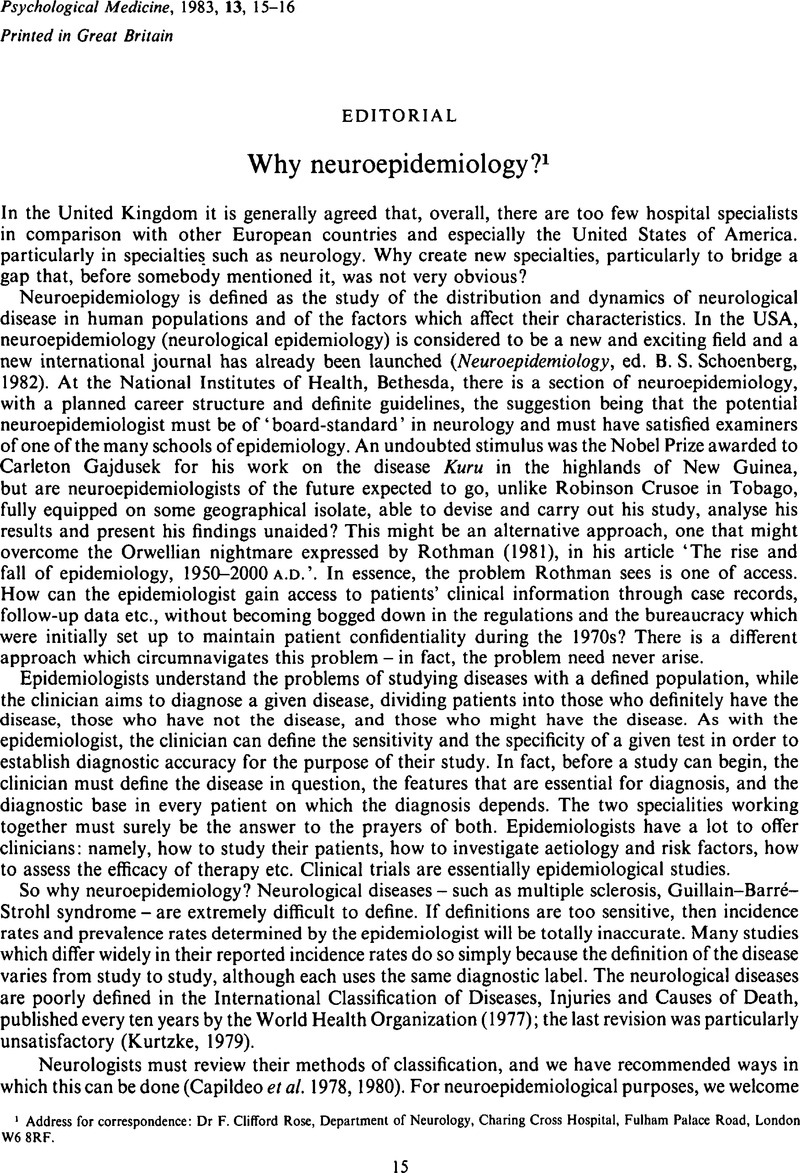Crossref Citations
This article has been cited by the following publications. This list is generated based on data provided by Crossref.
Shepherd, Michael
1984.
Psychogeriatrics and the neo-epidemiologists.
Psychological Medicine,
Vol. 14,
Issue. 1,
p.
1.
CUMMING, ROBERT G.
and
LEEDER, STEPHEN R.
1988.
THE CHANGING FACE OF NEUROLOGICAL DISEASE 1946–1987: AN EPIDEMIOLOGICAL PERSPECTIVE*.
Australian and New Zealand Journal of Medicine,
Vol. 18,
Issue. 7,
p.
881.



